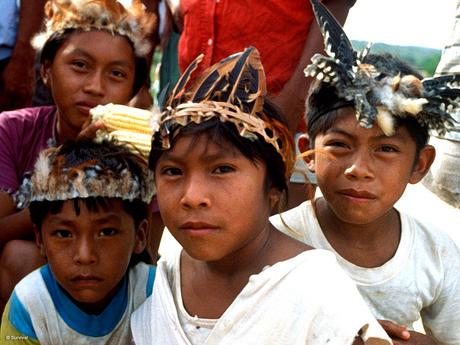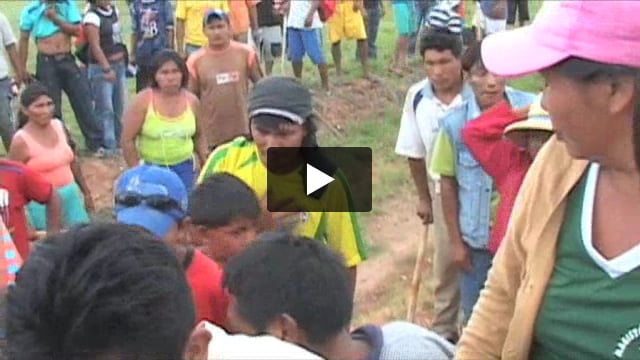Killings of Indians highlight land crisis
February 1, 2003
This page was last updated in 2003 and may contain language which is now outdated.
'This here is my life, my soul. If you take me away from this land, you take my life.'Marcos Veron, Guarani-Kaiowá leader, killed January 2003.
In just the first two weeks of 2003, three Indians have been murdered in Brazil. Behind these deaths lurks the spectre of Brazil's land rights scandal: it remains the only country in South America apart from Suriname which does not recognise Indian land ownership rights. One of the Indians killed, Marcos Veron, had travelled to Europe two years previously to help launch Survival's book, Disinherited – Indians in Brazil, which highlights this very problem.
Marcos Veron, aged around 70, was the leader of the Guarani-Kaiowá community of Takuára. For fifty years his people had been trying to recover even a small piece of their ancestral land, after it was seized by a wealthy Brazilian and turned into a vast cattle ranch. Most of the forest that once covered the area has since been cleared. In April 1997, desperate after years of lobbying the government in vain, Marcos led his community back onto the ranch. They began to rebuild their houses, and could plant their own crops again. But the rancher who had occupied the area went to court and a judge ordered the Indians out. In October 2001, more than a hundred heavily armed police and soldiers forced the Indians to leave their land once more. They eventually ended up living under plastic sheets by the side of a highway.
While still in Takuára, Marcos said, 'This here is my life, my soul. If you take me away from this land, you take my life.' His words came prophetically and tragically true early this year, when, during another attempt to return peacefully to his land, he was viciously beaten by employees of the rancher. He died a few hours later.
Marcos' death was the third Indian killing since the New Year. Just a few days earlier a 77-year old Kaingang man, Leopoldo Crespo, was brutally attacked and killed by a group of young men in the state of Rio Grande do Sul. A Makuxi Indian, Aldo da Silva Mota, was found buried in a shallow grave on a ranch in Roraima, northern Brazil. The Makuxi, like the Guarani, have been struggling for years to reclaim their lands in the teeth of bitter opposition from ranchers who now 'own' the land.
The hopes of Brazil's Indian peoples were raised last year when the Brazilian Congress approved the ratification of Convention 169 of the International Labour Organisation, the most important international law concerning tribal peoples. This obliges a country to 'identify the lands which the peoples concerned [i.e. tribal peoples] traditionally occupy, and to guarantee effective protection of their rights of ownership and possession.'
But there has been no word from the government on how this can be incorporated into law, given the country's historic refusal to do anything other than set aside areas of land for Indians to live in, the borders of which can then be reduced or moved at any time.
The Makuxi know well how vulnerable the present system leaves them: despite much of their homeland in Raposa-Serra do Sol being 'demarcated' for their use in this way, a minister signed an act to reduce the Indian area, and local ranchers have contested the demarcation. Because of these challenges, the demarcation has still not been ratified in law, and the Makuxi still suffer terribly as ranchers and goldminers invade their land and attack them.
Around the time of these three deaths, a new president took office in Brazil. Brazil's Indian peoples, and their friends and supporters around the world, are now hoping that he will at last take action to rectify this centuries-old injustice.



